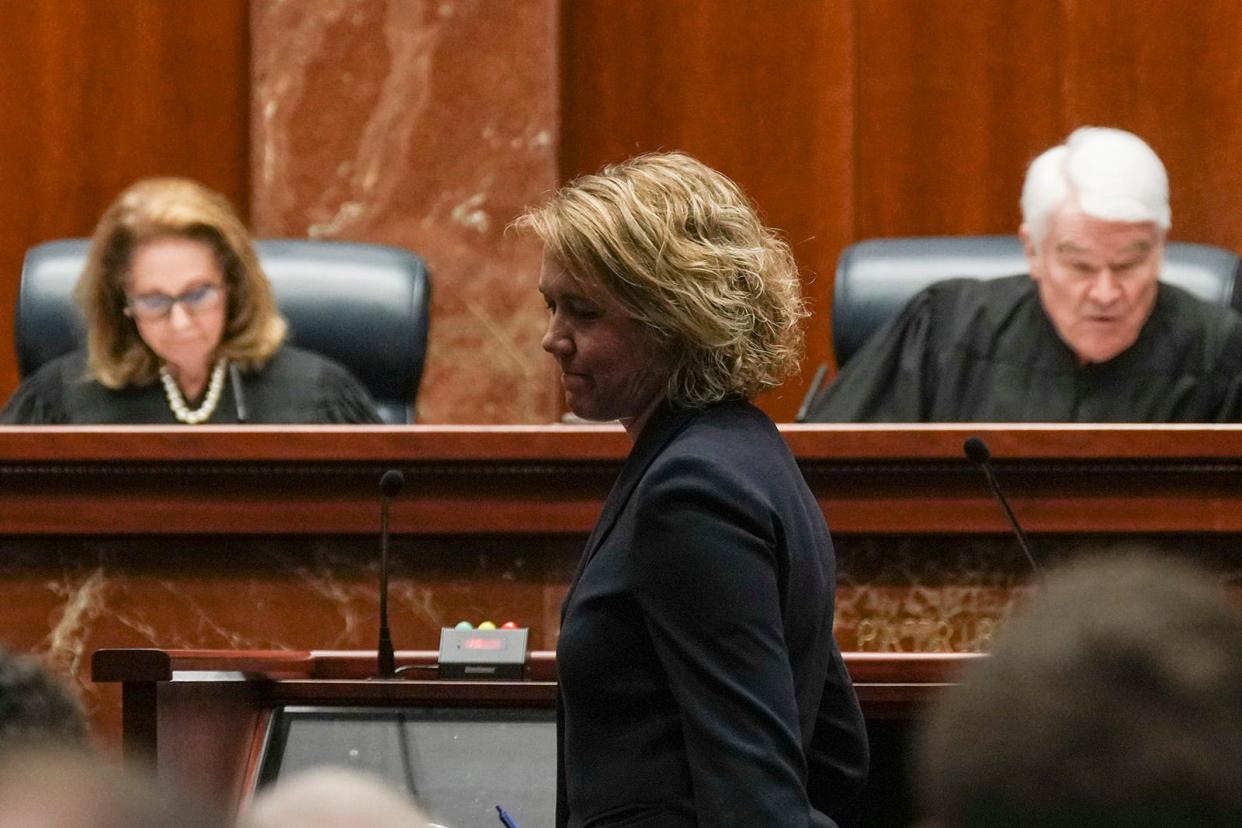Austin lawyers petition Texas Medical Board to clarify medical exceptions to abortion ban

Two Austin lawyers have filed a petition asking the Texas Medical Board to issue guidance on several state laws restricting abortion after the regulatory agency has remained silent amid calls from lawmakers, doctors and the state's highest court to clarify the medical exceptions allowed under the state's near-total abortion ban.
Abortions in Texas are allowed only when a mother's life is at risk.
Steve and Amy Bresnen, a married couple of Capitol lobbyists, filed the petition with the board Tuesday, asking it to create rules to "ensure critical care to pregnant females and implement medical emergency exceptions to laws that otherwise punish those who perform abortions."
The medical board has 60 days to either initiate its rulemaking process, which allows for a 30-day period of public comment before the new guidance is finalized, or formally decline the request, Steve Bresnen said. The lawyers filed the request under a Texas law that allows "interested parties" to petition the medical board to issue rules about which cases fall under the exception.
"The fact that life-threatening conditions related to pregnancy are driving women out of state for abortion care is not acceptable," the Bresnens wrote in an email to the American-Statesman. "The Legislature, the Governor, the Supreme Court of Texas and physicians have asked for clarity and the TMB has the power to give it. There is no excuse for further delay."
The Texas Medical Board did not respond to repeated Statesman requests for comment.
Bresnen and his wife, who is of childbearing age, are concerned about the lack of guidance for doctors, they told the Statesman. Since 2021, numerous women have alleged that uncertainty around the laws made doctors unwilling to provide emergency care until they were near death, or until they were forced to go out of state to prevent serious health issues.
"People are going to die under these circumstances," Steve Bresnen said. "We just decided that somebody needed to do something."
In December, the Texas Supreme Court called on the medical board to "do more to provide guidance" in the face of confusion about the ban, saying it had the legal authority to do so. The statement was part of a ruling rejecting Dallas mother Kate Cox's request to terminate a pregnancy with a fatal fetal diagnosis.
"Each of the three branches of government has a distinct role, and while the judiciary cannot compel executive branch entities to do their part, it is obvious that the legal process works more smoothly when they do," the justices wrote in the Supreme Court opinion.
But days later, Texas Medical Board Chair Dr. Sherif Zaafran said the regulatory body wouldn't issue new guidance while litigation related to the ban is ongoing.
"We’re going to hold back on getting involved in anything until all these issues, at least at the judicial setting, are resolved,” Zaafran told The Texas Tribune in December. “It wouldn’t be appropriate for us to start making any kind of movement or decisions while all that is out there still being adjudicated."
A ruling in a lawsuit pending in the state's high court against the board and state over a lack of guidance on the abortion ban is expected as early as this month. But as a longtime lobbyist who has seen many new laws make their way through the courts, Bresnen has little confidence that the legal disputes will end anytime soon.
"There will be ongoing litigation over the ban from now until the end of time," Bresnen said. "Waiting on that for the medical board to do something is not tenable."
More: 20 women sue Texas over abortion ban in state Supreme Court case
While their petition can't force the medical board to create new guidance, it asks the regulatory agency to give a "complete and detailed explanation" if it declines to initiate its rulemaking.
The Bresnens' proposal suggests ways in which the medical board could incorporate interpretation of the abortion laws by the Texas Supreme Court into its guidance. For example, the Bresnens included as a proposal the justices' contentions that the death of a pregnant patient "need not be imminent" to make her eligible for an exception. They also suggest conditions that could be included as justifying medically necessary abortions if they accompany risk of death, including sepsis, pre-eclampsia, embolism, liver disease, hypertension and cancer.
Several of these were present in the case of a woman who died during a difficult pregnancy, as reported in a January New Yorker story.
In the petition, the Bresnens write that their proposed rules "do not authorize the performance of an abortion that is not permitted by a medical emergency exception or narrow a physician's authority to perform an abortion."
"A lot of interested parties are looking for clarification," Amy Bresnen said. "And I think if no action is taken, then they're proving that exceptions may not work."
This article originally appeared on Austin American-Statesman: Texas Medical Board asked to create guidelines for abortion exceptions

